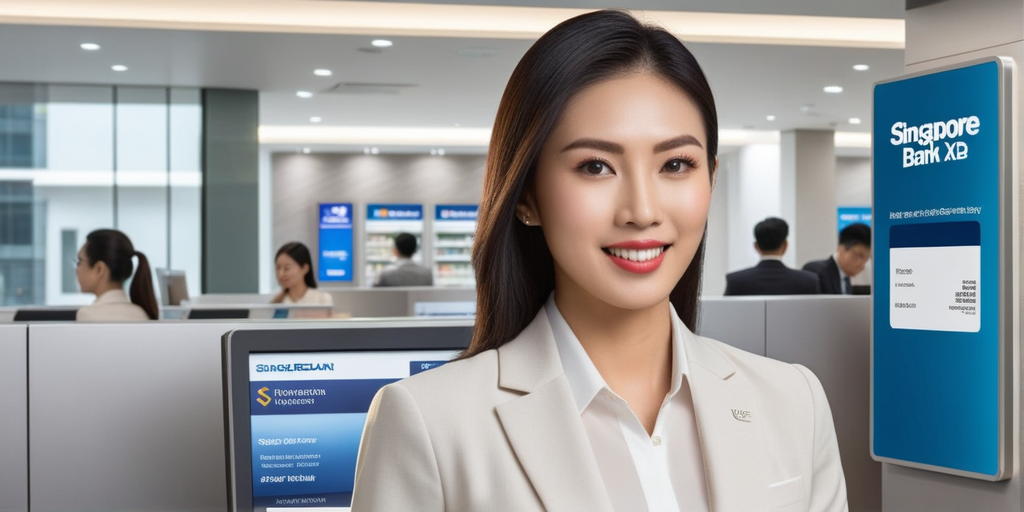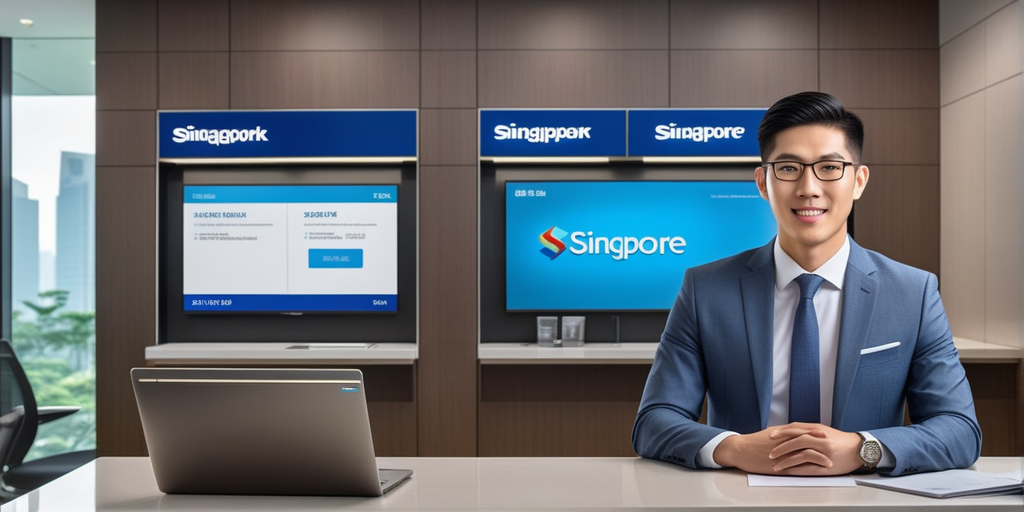If you are a property owner in Singapore, you might have heard of the term “Betterment Review Singapore”. The Betterment Review is a process that involves the revision of Land Betterment Charge (LBC) rates for different property types, which can affect property prices. In this article, we will provide you with an overview of the Betterment Review in Singapore and help you understand what it means for you as a property owner.

The Betterment Review is conducted by the Singapore Land Authority (SLA) in consultation with the Chief Valuer. The SLA is the statutory board responsible for managing state land and property in Singapore. The Chief Valuer is the head of the Valuation and Property Services Department, which is responsible for providing property valuation and assessment services to the government. The Betterment Review involves a review of LBC rates for different property types, which are used to calculate the amount of LBC payable by property owners when they undertake certain types of development or change of use of their properties.
Key Takeaways
- The Betterment Review is a process that involves the revision of Land Betterment Charge (LBC) rates for different property types, which can affect property prices.
- The Betterment Review is conducted by the Singapore Land Authority (SLA) in consultation with the Chief Valuer.
- The LBC rates are used to calculate the amount of LBC payable by property owners when they undertake certain types of development or change of use of their properties.
Understanding Betterment Charges in Singapore

If you’re a property owner in Singapore, you may have heard of the term “Betterment Charges”. These charges are levied by the government to property owners who benefit from the enhancement of land value due to the development of nearby infrastructure or amenities.
Land Betterment Charge
The Land Betterment Charge (LBC) is one of the betterment charges levied by the Singapore government. It is charged on a per square metre basis and is reviewed and revised every six months. The exact rates payable depend on the sector of Singapore in which the property is located, as well as the property type. The LBC rates for the period 1 March 2023 to 31 August 2023 have been revised following a review by the Singapore Land Authority (SLA), in consultation with the Chief Valuer.
Development Charge
The Development Charge (DC) is another betterment charge that is levied by the Urban Redevelopment Authority (URA) on property owners who benefit from the increase in land value arising from the grant of planning permission for development. The DC is calculated based on the increase in land value resulting from the grant of planning permission and is payable when the development is completed.
Differential Premium
The Differential Premium (DP) is a betterment charge that is levied by the Singapore Land Authority (SLA) on property owners who benefit from the grant of leasehold land with development potential. The DP is calculated based on the difference between the market value of the land with development potential and the market value of the land without development potential.
Temporary Development Levy
The Temporary Development Levy (TDL) is a betterment charge that is levied by the URA on property owners who benefit from the increase in land value arising from the grant of planning permission for temporary uses such as car parks, open-air markets, and temporary offices. The TDL is calculated based on the increase in land value resulting from the grant of planning permission and is payable when the temporary use is completed.
In summary, betterment charges are levied by the government on property owners who benefit from the enhancement of land value due to the development of nearby infrastructure or amenities. The charges include the Land Betterment Charge, Development Charge, Differential Premium, and Temporary Development Levy. The exact rates payable depend on the sector of Singapore in which the property is located, as well as the property type.
Regulatory Framework

When it comes to investing, it’s important to understand the regulatory framework in Singapore. This includes the Planning Act, Urban Redevelopment Authority (URA), and Singapore Land Authority. Here’s what you need to know:
Planning Act
The Planning Act is the main legislation governing land use and development in Singapore. Its purpose is to ensure that land is used in the best interests of the nation. Under the Planning Act, the Chief Valuer is responsible for determining the market value of land in Singapore.
Urban Redevelopment Authority (URA)
The URA is responsible for planning and regulating land use in Singapore. It oversees the development of new buildings and ensures that they comply with the relevant regulations. The URA also manages the sale of state land and is responsible for maintaining the land register.
Singapore Land Authority
The Singapore Land Authority is responsible for managing and maintaining the State’s land resources. It is the competent authority for land registration and is responsible for the management of land sales and leases. The Singapore Land Authority also manages the national land survey system and is responsible for maintaining the national land database.
Understanding the regulatory framework in Singapore is important when it comes to investing. By familiarizing yourself with the Planning Act, URA, and Singapore Land Authority, you can ensure that you are making informed decisions that comply with the relevant regulations.
Valuation and Payment

Valuation Method
When it comes to the valuation of properties in Singapore, the Land Betterment Charge (LBC) regime uses a market-based approach. This means that the value of the land is determined by taking into account the prices of similar properties in the area. The Singapore Land Authority (SLA) uses a computerized system to determine the market value of the land.
Table of Rates
The LBC rates are revised periodically by the SLA. The rates depend on the type of property and the location. There are different rates for landed and non-landed properties, as well as for residential, commercial, and industrial properties. You can find the latest rates on the SLA website or by contacting them directly.
Here is an example of the LBC rates for residential properties in selected areas:
| Type of Property | Location | LBC Rate (per square metre of land) |
|---|---|---|
| Landed | Central | $1,000 |
| Non-Landed | Central | $600 |
| Landed | Outside Central | $400 |
| Non-Landed | Outside Central | $200 |
Payment Process
If you are a property owner and your property has been granted planning permission, you will receive a Land Betterment Charge Notice from the SLA. This notice will state the amount of LBC that you are required to pay.
You can make payment through various methods, including online payment, cheque, or cash. It is important to note that the payment must be made within the stipulated time frame to avoid any penalties.
In conclusion, understanding the valuation and payment process of the LBC regime is important for property owners in Singapore. By staying informed about the latest rates and payment methods, you can ensure that you meet your obligations and avoid any unnecessary penalties.
Property Types and Planning Permissions

In Singapore, the Betterment Review is an important factor to consider when buying or selling a property. The Betterment Review is a charge imposed by the Singapore Land Authority (SLA) to enhance the value of land. The charge is applicable to all property types, including residential, commercial, and industrial properties.
Residential Properties
Residential properties in Singapore are divided into two main categories: landed and non-landed properties. Landed properties include bungalows, semi-detached houses, and terrace houses. Non-landed properties include apartments, condominiums, and HDB flats.
If you own a landed dwelling-house, you will be subject to a higher Betterment Review charge compared to non-landed residential buildings. This is because landed properties usually have larger land areas, which means they have a higher potential for development.
Commercial and Industrial Properties
Commercial and industrial properties are also subject to the Betterment Review charge. Commercial properties include retail shops, offices, and hotels, while industrial properties include factories and warehouses.
The Betterment Review charge for commercial and industrial properties is calculated based on the land area and the type of use. For example, a hotel or hospital will be subject to a higher charge compared to a retail shop or office building.
Planning Permission and Provisional Permission
Planning permission and provisional permission are also important factors to consider when it comes to the Betterment Review. Planning permission is required for any development of land outside a conservation area, while provisional permission is required for any development of land within a conservation area.
The Betterment Review charge is calculated based on the planning permission or provisional permission granted by the relevant authorities. The charge is usually higher for developments that require more extensive planning permission or provisional permission.
In conclusion, the Betterment Review charge is an important factor to consider when buying or selling a property in Singapore. The charge is applicable to all property types and is calculated based on various factors such as land area, property type, and planning permission.
Geographical Sectors and Use Groups

Sector and Use Group Classifications
When it comes to Betterment Review Singapore, it’s important to understand the different geographical sectors and use groups. Geographical sectors are divided into Sector 6 and Sector 60. Sector 6 is located to the west of the Pan-Island Expressway, while Sector 60 is located to the east.
Use groups are classified into A, B1, and B2, with A being commercial, B1 being landed residential, and B2 being non-landed residential. There is also a C use group, which includes hotels and hospitals.
Specific Area Rates
The Land Betterment Charge (LBC) rates vary depending on the specific area and use group. For example, the rates for Use Group A (Commercial) and C (Hotel/Hospital) have increased for the period from 1 September 2023 to 29 February 2024. On the other hand, the rates for Use Groups B1 (Residential, landed), B2 (Residential, non-landed), and C (Hotel/Hospital) have increased for the period from 1 March 2023 to 31 August 2023.
Specific areas also have their own rates. For instance, the LBC rates for Choa Chu Kang Road and Upper Bukit Timah Road are different from the rates for the Bukit Panjang area. Similarly, the LBC rates for Xilin Avenue and Simei are different from the rates for the Changi South area.
It’s important to note that these rates are subject to change based on reviews by the Singapore Land Authority (SLA) and in consultation with the Chief Valuer. So, it’s always a good idea to keep up-to-date with the latest revisions to the rates.
Overall, understanding the geographical sectors and use groups, as well as the specific area rates, can help you better navigate the Betterment Review process in Singapore.
Exemptions and Reliefs

Concessionary Relief
If you are a developer who is constructing a development on land that is granted under a State lease to a public authority, you may be eligible for concessionary relief on Land Betterment Charge (LBC) payable for chargeable consent. This relief is applicable only for controlled activities that are carried out on the land. You can find more information about this relief here.
Exemption Criteria
There are certain criteria that must be met for a development to be exempt from LBC. These include:
- The development must be carried out by a public authority for public purposes.
- The development must be carried out on land that is owned by a public authority.
- The development must not be for the purpose of sale or lease.
- The development must not be for the purpose of generating income.
If your development meets these criteria, you may be eligible for exemption from LBC. You can find more information about the exemption criteria here.
It is important to note that even if your development meets the exemption criteria, you may still need to obtain chargeable consent from the Singapore Land Authority (SLA) before carrying out the development. Chargeable consent is required for any development that involves the subdivision, amalgamation, or conversion of land, or the erection, addition, or alteration of any building or structure. You can find more information about chargeable consent here.
In conclusion, if you are a developer who is carrying out a development in Singapore, it is important to be aware of the exemptions and reliefs that are available for Land Betterment Charge. By understanding these criteria, you can ensure that you are not paying more than you need to for your development.
Contact Information and Resources

If you have any questions or concerns about Betterment, there are several resources available to you. Below are some relevant authorities and additional support options.
Relevant Authorities
If you have any questions about the Land Betterment Charge (LBC) or related matters, you can contact the Singapore Land Authority (SLA) at tel. no. 6478 3767. The SLA is located at 55 Newton Road, #12-01 Revenue House, Singapore 307987. You can also visit their website at www.sla.gov.sg.
If you have any questions about investing or financial planning, you can contact the Monetary Authority of Singapore (MAS) at tel. no. 6225 5577. The MAS is located at 10 Shenton Way, MAS Building, Singapore 079117. You can also visit their website at www.mas.gov.sg.
Additional Support
Betterment also offers customer support through their website at www.betterment.com. You can contact them through their online chat feature or by submitting a support request. They also have a comprehensive FAQ section on their website that covers many common questions and concerns.
If you prefer to speak to a human advisor, Betterment offers access to licensed financial experts for an additional fee. You can schedule a call with an advisor through your Betterment account.
In addition, there are many financial advisors and investment professionals in Singapore who can provide guidance and support for your investment journey. Some reputable firms in the Collyer Quay, Hill Street, Victoria Street, Seah Street, Beach Road, Ophir Road, Nicoll Highway, Esplanade Drive, City Hall area, Suntec City area, Raffles Avenue, and Promenade area include Ms Tan Puay Joo, who has over 20 years of experience in financial planning and investment management.
Frequently Asked Questions

How is the Land Betterment Charge calculated?
The Land Betterment Charge is calculated based on the increase in land value resulting from government-initiated infrastructure improvements. The charge is calculated as a percentage of the increase in land value, with different rates applying to different sectors.
The Singapore Land Authority (SLA) is responsible for determining the rates and sector maps.
Can the Land Betterment Charge vary with a change of land use?
Yes, the Land Betterment Charge can vary with a change of land use. The SLA has the power to revise the sector maps and rates periodically to reflect changes in land use and market conditions.
How do Land Betterment Charge sector maps and rates affect property valuation?
The Land Betterment Charge sector maps and rates can affect property valuation, especially in areas where government-initiated infrastructure improvements are planned or ongoing.
Property owners in these areas may need to pay a higher Land Betterment Charge. It can reduce the value of their property.
What’s the difference between Land Betterment Charge and Differential Premium?
The Land Betterment Charge is a charge levied on the increase in land value resulting from government-initiated infrastructure improvements. Differential Premium, on the other hand, is a charge levied on the use of land for a purpose other than its existing use, such as the conversion of agricultural land to residential land.
The two charges are distinct and serve different purposes.
What should one know about the Land Betterment Charge Sector Map?
The Land Betterment Charge Sector Map is a map that shows the different sectors in Singapore. It includes the corresponding Land Betterment Charge rates. The map is revised periodically by the SLA to reflect changes in land use and market conditions. Property owners can check the map to determine the Land Betterment Charge rate applicable to their property.
How reliable is Betterment for new investors, and what should they expect?
Betterment is a reliable robo-advisor that can help new investors manage their investments. The platform uses a portfolio of low-cost exchange-traded funds (ETFs). It’s to build a diversified investment portfolio tailored to the investor’s goals and risk tolerance.
Betterment also offers tax-efficient investment strategies and automatic rebalancing to help investors achieve their goals. However, investors should be aware that investment involves risk, and past performance is not a guarantee of future results. It’s always a good idea to consult a financial advisor before making any investment decisions.

